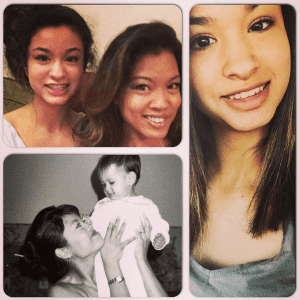


05/30/2017
Let’s talk about marijuana.
Specifically, let’s talk about how and why I came to be one of the countless parents across America (and around the world) who have let their chronically ill children try it.
A groundbreaking new study published last week in the New England Journal of Medicine reported on the health benefits of cannabidiol for children with epilepsy. The randomized, double-blind, controlled study found that among children with Dravet syndrome taking cannabidiol, the decrease in the frequency of convulsive seizures was 23 percentage points greater than the decrease in seizures among children taking a placebo.
Cannabidiol is one of hundreds of chemical components found in cannabis plants. Unlike THC, the most famous of marijuana’s compounds, CBD is nonhallucinogenic and nonaddictive. It doesn’t make you high. CBD can be extracted from hemp and sold as an oil. That’s what the pioneering Stanley Brothers of Boulder, Colorado, did several years ago when they conceived and manufactured "Charlotte’s Web" — named after Charlotte Figi, a Colorado Springs girl with Dravet syndrome whose seizures dramatically decreased after using CBD.
Until now, evidence of marijuana’s benefits for pediatric epilepsy patients has been largely anecdotal. The new CBD study, led by researchers at the NYU Langone’s Comprehensive Epilepsy Center, is a hugely significant development because it uses the scientific gold standard of a randomized controlled trial. Other limited clinical trials involving CBD have explored the drug’s therapeutic benefits for pediatric patients with conditions ranging from anxiety to movement disorders to inflammatory diseases, multiple sclerosis and cancer.
 |
|
Michelle Malkin and daughter Veronica |
When my daughter, Veronica, fell ill in late spring of 2015 — unable to breathe normally, bedridden with chronic pain and fatigue — she saw dozens of specialists. Among those doctors was a leading neurologist at one of Denver’s most well-regarded hospitals who treated intractable cases. The various drugs prescribed to my daughter weren’t working and had awful side effects.
One of them, a potent anti-epileptic drug called Trileptal, was supposed to treat the severe motor tic that left her gasping for air nonstop for months. But Trileptal ended up causing extreme loss of appetite, more fatigue and temporary dystonia, while doing nothing to alleviate the tics. The constant jerking of her body caused one of my daughter’s hypermobile shoulders to dislocate multiple times a day — increasing her pain and anxiety.
To our surprise, the mainstream neurologist suggested Veronica try CBD. This doctor had other young patients who used CBD oil with positive results, but she could not directly prescribe it because of her hospital affiliation. So we did our own independent research, talked to a Colorado Springs family whose son had great success using CBD to treat his Crohn’s disease symptoms, consulted with other medical professionals and friends — and entered a whole new world.
Two physicians signed off on our daughter’s application for a medical marijuana card. She became one of more than 360 children under 18 to join Colorado’s medical marijuana registry in 2015.
And we became pediatric pot parents.
For Veronica, CBD provided more relief than all the other mainstream pharmaceutical interventions she had endured, and without the scary side effects. But ultimately, it was a temporary remedy for her complicated basket of neurological and physiological conditions. We were glad for the chance to try CBD at the recommendation of medical professionals, and glad that so many other families are having success with it.
Our experience showed us the importance of increasing therapeutic choices in the marketplace for all families — and trusting doctors and patients to figure out what works best.
It flies in the face of current science to classify CBD oil as a Schedule I drug, as the feds did at the end of 2016. Nor does it make sense to draw the line at CBD if some patients and doctors believe that the benefits of using THC therapeutically outweigh the potential harm.
As a lifelong social conservative, my views on marijuana policy may surprise some of you.
I used to be a table-pounding crusader for the government’s war on drugs. When I worked in Seattle in the 1990s, I initially opposed efforts to legalize medical marijuana. I also opposed efforts to loosen restrictions on conducting studies on the potential therapeutic effects of using marijuana.
But the war on drugs has been a ghastly quagmire — an expensive and selective form of government paternalism that has done far more harm than good. What has this trillion-dollar war wrought?
Overcrowded jails teeming with nonviolent drug offenders. An expanded police state enriched by civil asset forfeiture. And marginalization of medical researchers pursuing legitimate research on marijuana’s possible therapeutic benefits for patients with a wide variety of illnesses.
The Trump administration has sent mixed signals on a medical marijuana crackdown.
So let me be clear as a liberty-loving, conservative mom: Keep your hands off. Let the scientists lead. Limited government is the best medicine.
COPYRIGHT 2016 CREATORS.COM